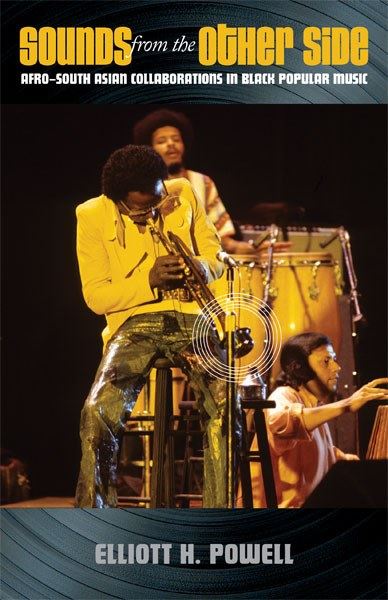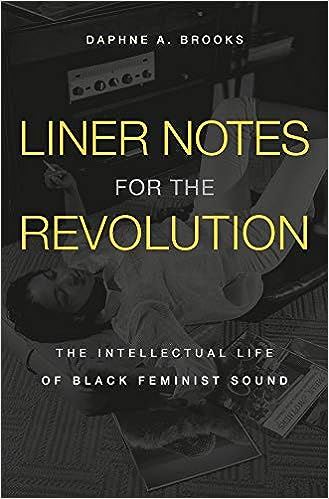The Woody Guthrie and
Greg tate book Awards
The International Association for the Study of Popular Music-US Branch (IASPM-US) presents the Woody Guthrie Awards each year to the most outstanding books on popular music.
- As of 2022, two awards are given: one for the most outstanding book that is an author’s first monograph, and one for the most outstanding book beyond an author’s first monograph.
- Winners are announced each year at the IASPM-US Annual Conference. Award winners receive a monetary award and are invited to deliver the Woody Guthrie Lecture, a keynote address at the following year’s IASPM-US conference; they are also invited to have the lecture published in the organization’s Journal of Popular Music Studies.
- The book award committee and call for nominations for the 2026 award will be announced later in 2025.
2025 Greg Tate Book Award Winner
 Our inaugural Tate Prize Winner is Liz Przybylski’s Sonic Sovereignty: Hip Hop, Indigeneity and Shifting Popular Music Mainstreams (New York University Press, 2023). Sonic Sovereignty powerfully testifies to the self-determination of indigenous rap artists and the ethical responsibilities and investments that decolonial music making and music listening demands. Pryzbylski brings together lucid analysis of live performance as a form of protest, together with radio and online musical scenes by indigenous music makers, informed by Przbylski’s skills as a digital media maker, podcaster and well as activist and ethnographer. The book’s throughline of critique of Canada’s/ North America’s colonialist history lends an urgency that is sure to make a major impact on the field of Popular Music Studies.
Our inaugural Tate Prize Winner is Liz Przybylski’s Sonic Sovereignty: Hip Hop, Indigeneity and Shifting Popular Music Mainstreams (New York University Press, 2023). Sonic Sovereignty powerfully testifies to the self-determination of indigenous rap artists and the ethical responsibilities and investments that decolonial music making and music listening demands. Pryzbylski brings together lucid analysis of live performance as a form of protest, together with radio and online musical scenes by indigenous music makers, informed by Przbylski’s skills as a digital media maker, podcaster and well as activist and ethnographer. The book’s throughline of critique of Canada’s/ North America’s colonialist history lends an urgency that is sure to make a major impact on the field of Popular Music Studies.
2025 Woody Guthrie Book Award Winner

Luis Manuel Garcia-Mispireta's Together, Somehow: Music, Affect, and Intimacy on the Dancefloor (Duke University Press, 2023) is an insightful study of EDM culture and affect through an ethnography of clubs in Chicago, Paris, and Berlin. Garcia-Mispireta traces the intimacy and "vague belonging" that listeners feel on the dancefloor through physical touch, sound vibrations, the texture and grain of the music, the space of the dancefloor, and even the liminal boundary of the bouncer and the line outside the door. Throughout the book, Garcia-Mispireta's empathetic stance towards his interlocutors and his readers is apparent; he presents a nuanced and complex theory for approaching intimacy and affect in EDM culture with coherence, sensitivity, and a clear passion for the music and the people who are part of it.
2025 Guthrie Award Honorable Mentions
 Lisa Barg's Queer Arrangements: Billy Strayhorn and Midcentury Jazz Collaboration (Wesleyan University Press, 2023) represents LGBTQ+ scholarship at its finest. Barg takes us on a kaleidoscopic journey through the life and music of Billy Strayhorn, using a creative and playful approach to the archive. This book offers a beautifully written musical biography of an out, black, queer musician and a titan of jazz. It is a gift to multiple disciplines and a must-read for pop music scholars.
Lisa Barg's Queer Arrangements: Billy Strayhorn and Midcentury Jazz Collaboration (Wesleyan University Press, 2023) represents LGBTQ+ scholarship at its finest. Barg takes us on a kaleidoscopic journey through the life and music of Billy Strayhorn, using a creative and playful approach to the archive. This book offers a beautifully written musical biography of an out, black, queer musician and a titan of jazz. It is a gift to multiple disciplines and a must-read for pop music scholars.
 Our other honorable mention for the Guthrie First Book prize is Jonathan Leal’s Dreams in Double Time: On Race, Freedom and Bebop (Duke University Press, 2023). In prose as shimmering and incisive as the music it covers, Leal offers up an alternative history of bebop and the freeing powers of its anti-Blackness heart for three musicians and writers of color, Chicano poet Raul Salinas, James Araki, a Nisei scholar, translator and multi-instrumentalist, and Harold Wing, An Afro-Chinese American drummer. Leal offers new understanding of the significance of Bebop in the mid-twentieth century as a form of freedom struggle, that is both demanding and inclusive, instigating new collaborations and radical forms of belonging outside of a Black/White binary.
Our other honorable mention for the Guthrie First Book prize is Jonathan Leal’s Dreams in Double Time: On Race, Freedom and Bebop (Duke University Press, 2023). In prose as shimmering and incisive as the music it covers, Leal offers up an alternative history of bebop and the freeing powers of its anti-Blackness heart for three musicians and writers of color, Chicano poet Raul Salinas, James Araki, a Nisei scholar, translator and multi-instrumentalist, and Harold Wing, An Afro-Chinese American drummer. Leal offers new understanding of the significance of Bebop in the mid-twentieth century as a form of freedom struggle, that is both demanding and inclusive, instigating new collaborations and radical forms of belonging outside of a Black/White binary.
2024 Woody Guthrie Book Award Winners
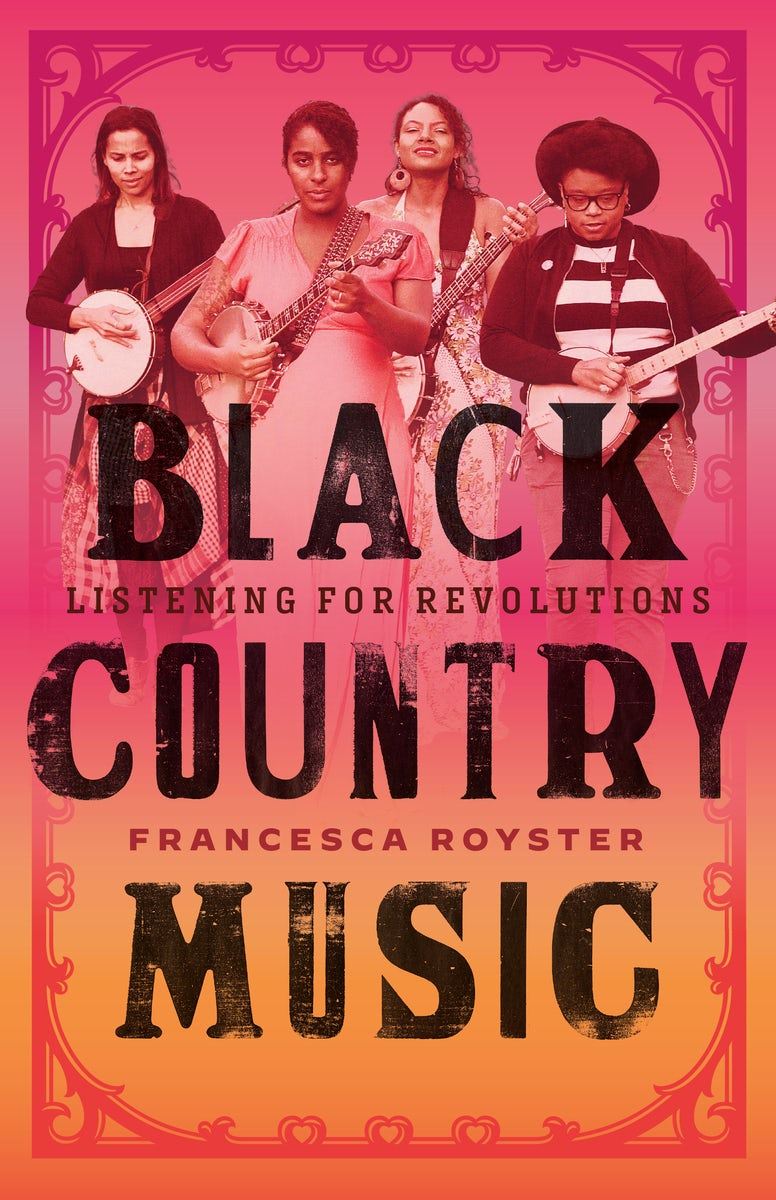 This year’s Woody Guthrie Beyond First Book Award goes to Francesca Royster’s Black Country Music: Listening for Revolutions (University of Texas Press). Rarely does a piece of popular music scholarship meet the present moment like Black Country Music does —which is to say, with devastating vulnerability and utter originality. Interweaving personal vignettes with musical and historical analyses of the performances of artists such as Darius Rucker and Valerie June, Royster’s monograph doesn’t just tell its readers why Black country matters; it shows us how the music matters to its Black fans. The result is an engaging and often moving read that does not just educate, but activates, inviting each reader to hear their own musical passions as part of a living history worth sharing.
This year’s Woody Guthrie Beyond First Book Award goes to Francesca Royster’s Black Country Music: Listening for Revolutions (University of Texas Press). Rarely does a piece of popular music scholarship meet the present moment like Black Country Music does —which is to say, with devastating vulnerability and utter originality. Interweaving personal vignettes with musical and historical analyses of the performances of artists such as Darius Rucker and Valerie June, Royster’s monograph doesn’t just tell its readers why Black country matters; it shows us how the music matters to its Black fans. The result is an engaging and often moving read that does not just educate, but activates, inviting each reader to hear their own musical passions as part of a living history worth sharing.
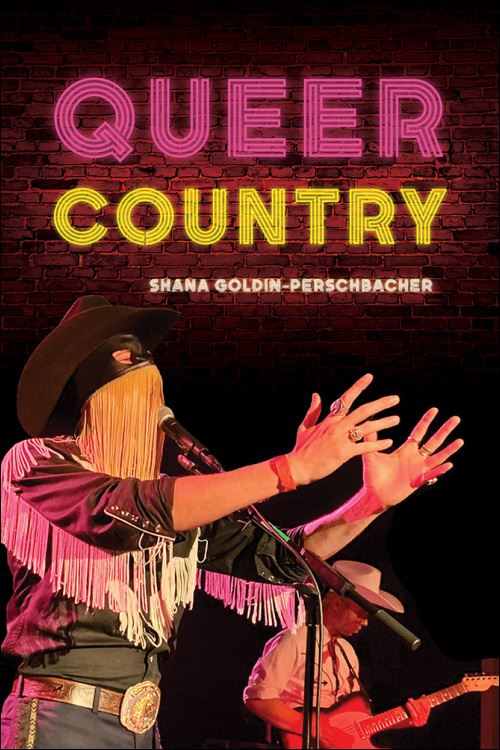
This year’s Woody Guthrie First Book Award goes to Shana Goldin-Perschbacher’s Queer Country (University of Illinois Press). As bold in conviction as novel in argumentation, Queer Country doesn’t just “queer” country, in the sense of revealing and challenging the country industry’s putative heterosexism; it queers the very concepts by which people attempt to affix music to stable, legible identities—among them genre, sincerity, and cultural ownership. Through lucid, accessible, and yet rigorous prose, Goldin-Perschbacher distills and deconstructs decades-long debates in popular music scholarship with precision, revealing the murky complexity that such seemingly straightforward terms hide. In its transparent ethnographic detail and careful discursive analyses, Queer Country generously makes space for queer, trans, and non-binary performers of country music to unsettle the terms by which the music industry has historically excluded them.
2024 Honorable Mentions
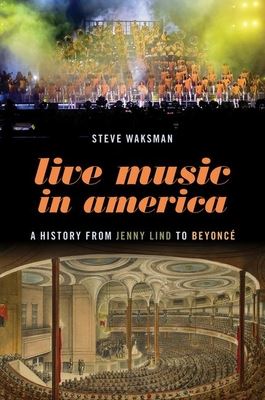 Our first honorable mention goes to Steve Waksman’s Live Music in America: A History from Jenny Lind to Beyoncé (Oxford University Press). Waksman’s sweeping account of how and why live music has mattered in the U.S. since the mid-19th century reframes the seemingly ephemeral experience of togetherness through music as an enduring, legible facet of our collective enthusiasms and values. Its syntheses of enormous amounts of primary-source research repeatedly, and thrillingly, provide multiple occasions to rethink some of the most frequently retold and accepted core historical narratives about U.S. popular music. Throughout, the book delivers a compelling narrative about the architectures of live music – from promoters and venues to performers and audiences – that should become a staple of popular music studies scholarship for generations.
Our first honorable mention goes to Steve Waksman’s Live Music in America: A History from Jenny Lind to Beyoncé (Oxford University Press). Waksman’s sweeping account of how and why live music has mattered in the U.S. since the mid-19th century reframes the seemingly ephemeral experience of togetherness through music as an enduring, legible facet of our collective enthusiasms and values. Its syntheses of enormous amounts of primary-source research repeatedly, and thrillingly, provide multiple occasions to rethink some of the most frequently retold and accepted core historical narratives about U.S. popular music. Throughout, the book delivers a compelling narrative about the architectures of live music – from promoters and venues to performers and audiences – that should become a staple of popular music studies scholarship for generations.
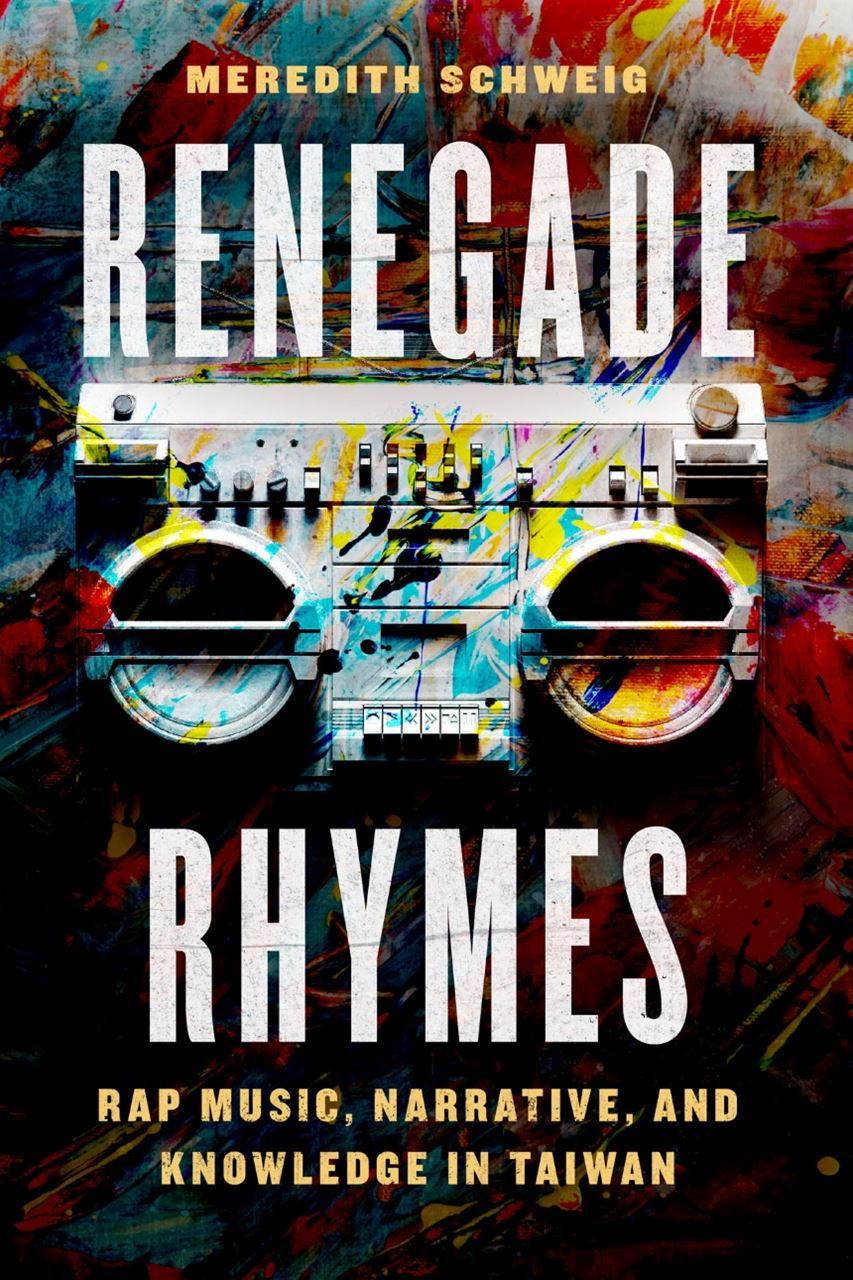 Our second honorable mention goes to Meredith Schweig’s Renegade Rhymes: Rap Music, Narrative, and Knowledge in Taiwan (University of Chicago Press). Renegade Rhymes is a richly researched and thoughtfully composed study of rap music in post-martial law Taiwan. Through a detailed mix of historical narrative, personal experience, musical analysis, and lucid translation, Schweig deftly weaves together micro and macro perspectives on the art and activism of Taiwanese rap. Renegade Rhymes is a truly unrepeatable tour-de-force of ethnomusicological scholarship, and an exemplary major research monograph.
Our second honorable mention goes to Meredith Schweig’s Renegade Rhymes: Rap Music, Narrative, and Knowledge in Taiwan (University of Chicago Press). Renegade Rhymes is a richly researched and thoughtfully composed study of rap music in post-martial law Taiwan. Through a detailed mix of historical narrative, personal experience, musical analysis, and lucid translation, Schweig deftly weaves together micro and macro perspectives on the art and activism of Taiwanese rap. Renegade Rhymes is a truly unrepeatable tour-de-force of ethnomusicological scholarship, and an exemplary major research monograph.
2023 Woody Guthrie Book Award Winners
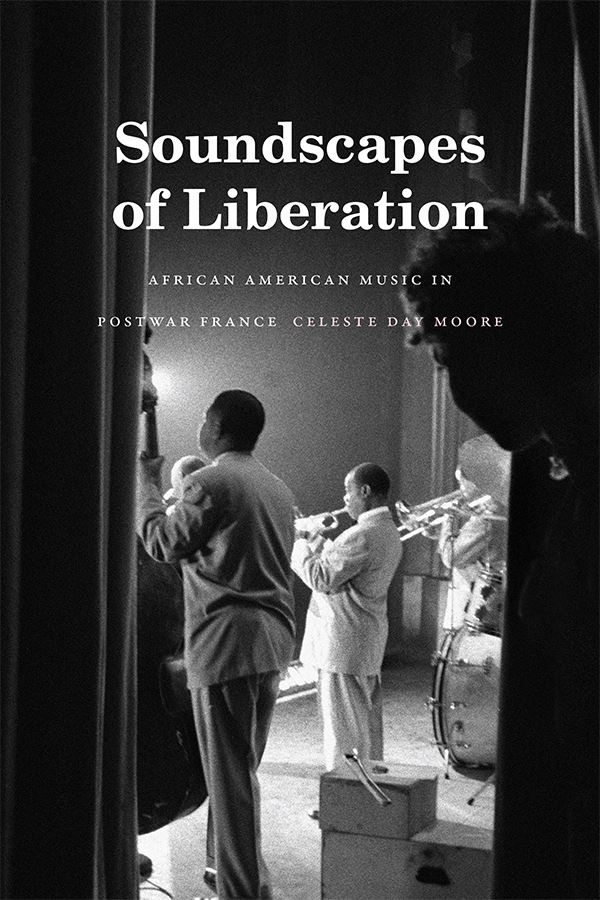 The IASPM US book awards committee chose as the recipient of the New Book Award Celeste Day Moore's Soundscapes of Liberation: African American Music in Postwar France (Duke University Press). Moore's book is an examination of international and intercultural exchange, which carefully considers the people and institutions that benefit and/or suffer from resultant power dynamics, national mythmaking, and the perpetuation of American exceptionalism. Members of the committee were especially struck by Moore's meticulous research and beautiful presentation.
The IASPM US book awards committee chose as the recipient of the New Book Award Celeste Day Moore's Soundscapes of Liberation: African American Music in Postwar France (Duke University Press). Moore's book is an examination of international and intercultural exchange, which carefully considers the people and institutions that benefit and/or suffer from resultant power dynamics, national mythmaking, and the perpetuation of American exceptionalism. Members of the committee were especially struck by Moore's meticulous research and beautiful presentation.
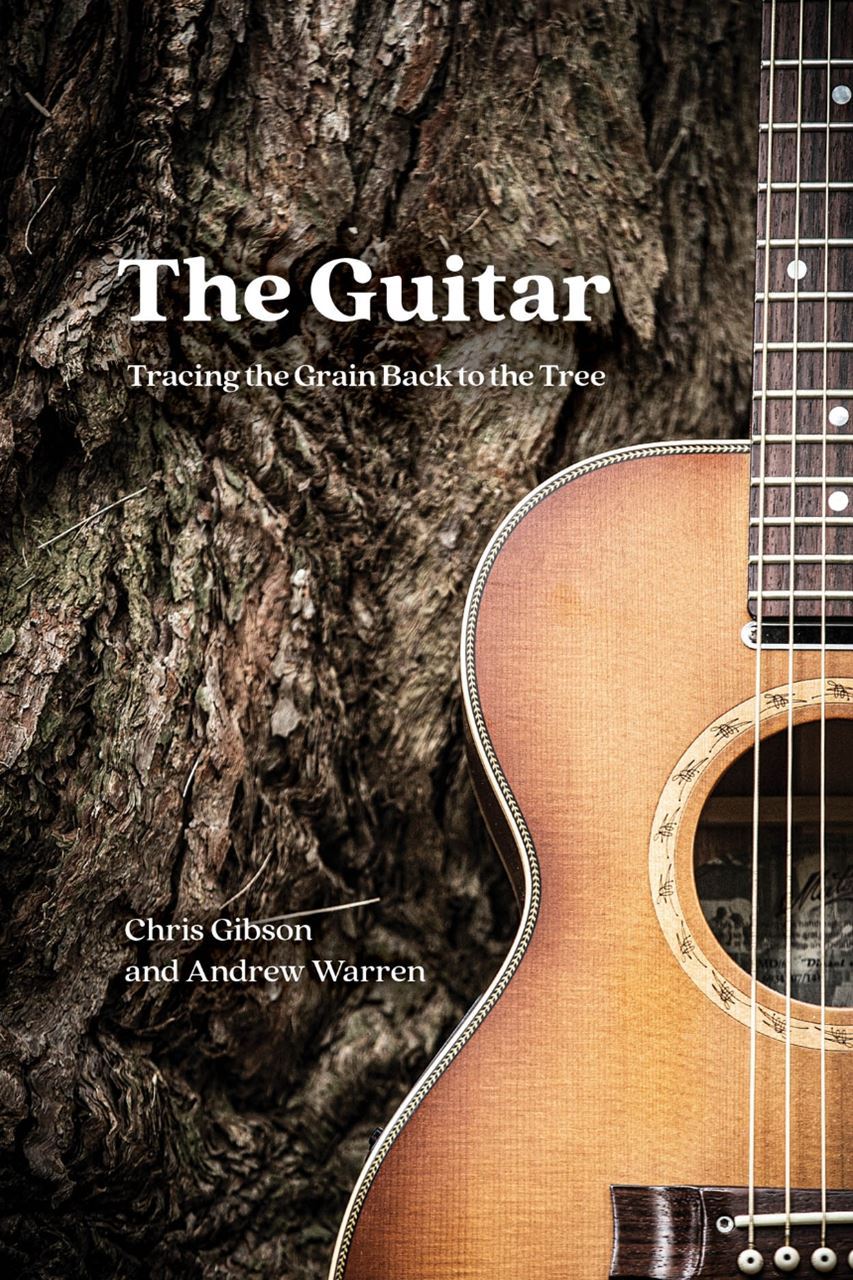 The IASPM US book awards committee this year awarded the Woody Guthrie Prize to The Guitar: Tracing the Grain Back to the Tree by Chris Gibson and Andrew Warren (University of Chicago Press). The committee was impressed by the authors' detailed, generous and humane examination of the many people from across the world who contribute to an art form and its culture(s). Beautifully researched and written, The Guitar reminded some of our committee of Howard Becker's celebrated study Art Worlds, which also takes a holistic approach to the creation and perpetuation of artmaking. The book's authors, both geographers, reminded many members of the committee of just how interdisciplinary and wide-ranging popular music studies can be. As a group, we were all deeply impressed by their lively, engaging and enthusiastic approach to their subject.
The IASPM US book awards committee this year awarded the Woody Guthrie Prize to The Guitar: Tracing the Grain Back to the Tree by Chris Gibson and Andrew Warren (University of Chicago Press). The committee was impressed by the authors' detailed, generous and humane examination of the many people from across the world who contribute to an art form and its culture(s). Beautifully researched and written, The Guitar reminded some of our committee of Howard Becker's celebrated study Art Worlds, which also takes a holistic approach to the creation and perpetuation of artmaking. The book's authors, both geographers, reminded many members of the committee of just how interdisciplinary and wide-ranging popular music studies can be. As a group, we were all deeply impressed by their lively, engaging and enthusiastic approach to their subject.
2022 Woody Guthrie Book Award Winners
The IASPM-US Awards Committee is pleased to award the 2021 Woody Guthrie First Book Award to Elliot H. Powell's Sounds from the Other Side: Afro-South Asian Collaborations in Black Popular Music (University of Minnesota Press). The Outstanding Book Beyond Author's First Monograph is awarded to Liner Notes for the Revolution: The Intellectual Life of Black Feminist Sound by Daphne A. Books (Harvard University Press).
Sounds from the Other Side is a revelatory study of crucial but under-recognized Afro-South Asian cultural interactions in U.S. popular music - a history of connection that has been hiding in plain sight. Dr. Powell provides richly detailed background and deeply nuanced analysis for beloved works from Coltrane to Timbaland, Truth Hurts, and Rajé Shwarmi, exploring them through frameworks of race and gender and politics—different frameworks, it is important to note, than those typically found in discussions of the cross-cultural, appropriative efforts of white musicians, and Powell’s central analytical framework of performance “from the other side” offers suggestive portability for theorizing other artists and repertoire. The book is researched with literary and ethnographic rigor and written with stunning, convincing clarity, despite its nuance. It should surely be included as required reading in future course on U.S. or global popular musics.
Liner Notes is an exhaustive study that doesn't feel remotely exhausting. Daphne Brooks has literally written the book on the endless and still unfolding contributions of Black women in sound, music, and everything in between. This book is a watershed moment in the field - a magisterial work that provides a consummate reorientation of the history of popular music and criticism, through the centering of Black women performers, philosophers, and critics - categories which Brooks explicitly demonstrates as overlapping ones, in the presentation of her historical interlocutors and their works.
2021 Woody Guthrie Book Award Winners
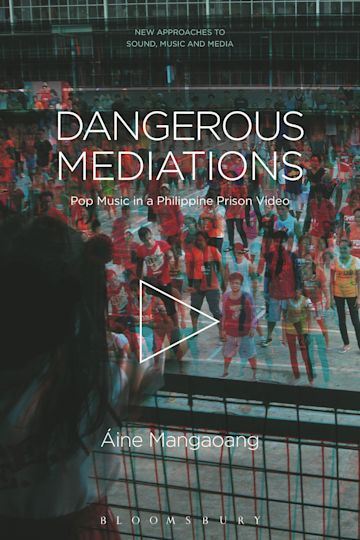 The IASPM-US Awards Committee is pleased to award the 2021 Woody Guthrie First Book Award to Áine Mangoang’s Dangerous Mediations: Pop Music in a Philippine Prison Video (Bloomsbury). The Outstanding Book Beyond Author's First Monograph is awarded to Deborah Wong’s Louder and Faster: Pain, Joy, and the Body Politic in Asian American Taiko (University of California Press).
The IASPM-US Awards Committee is pleased to award the 2021 Woody Guthrie First Book Award to Áine Mangoang’s Dangerous Mediations: Pop Music in a Philippine Prison Video (Bloomsbury). The Outstanding Book Beyond Author's First Monograph is awarded to Deborah Wong’s Louder and Faster: Pain, Joy, and the Body Politic in Asian American Taiko (University of California Press).
Aine Mangoang’s Dangerous Mediations: Pop Music in a Philippine Prison Video is innovative and timely. The deep reflection and analysis that transpire throughout its pages, based on a 4:26 minute YouTube video, goes beyond thick description; it is a masterful example of digital media scholarship centered on popular music. Building on existing literature on music and power, subversion, trauma, colonialism, and violence, the author offers a serious interrogation of the complicity of performers, audiences, and media in shaping power dynamics and subjectivities in a globalized postcolonial context. While focused on a narrowly contained case, the applicability of the ethical questions raised resonate across media studies, music studies, postcolonial studies, and beyond.
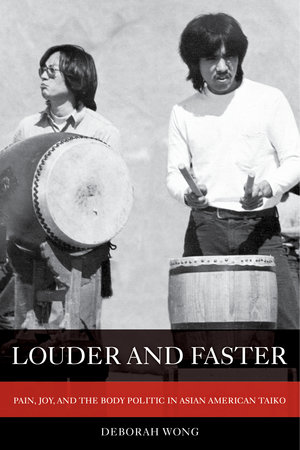 Deborah Wong’s Louder and Faster: Pain, Joy, and the Body Politic in Asian American Taiko is beautifully and evocatively written, with both a deep sonic sensitivity in the prose, and a successful entangling of the reader within the spaces and social networks and relationships it depicts. While theoretically rich, the language is accessible to a wide variety of audiences ranging from readers with little or no background in music studies to scholars in musicology, ethnomusicology, ethnic studies, and more. Wong’s positioning of taiko offers productive challenge to operating exclusive definitions of traditional and popular musics. Lastly, the relevance of the life-long work by an Asian American scholar today cannot be overstated. As anti-Asian racist incidents have skyrocketed to horrific extents during the COVID-19 pandemic, the nuanced understanding that this book brings to the study of this minoritized community and practice is urgently needed – a framework for examining pain and rage, but also joy. Louder and Faster is a model for engaging the sonic through autoethnography of performance.
Deborah Wong’s Louder and Faster: Pain, Joy, and the Body Politic in Asian American Taiko is beautifully and evocatively written, with both a deep sonic sensitivity in the prose, and a successful entangling of the reader within the spaces and social networks and relationships it depicts. While theoretically rich, the language is accessible to a wide variety of audiences ranging from readers with little or no background in music studies to scholars in musicology, ethnomusicology, ethnic studies, and more. Wong’s positioning of taiko offers productive challenge to operating exclusive definitions of traditional and popular musics. Lastly, the relevance of the life-long work by an Asian American scholar today cannot be overstated. As anti-Asian racist incidents have skyrocketed to horrific extents during the COVID-19 pandemic, the nuanced understanding that this book brings to the study of this minoritized community and practice is urgently needed – a framework for examining pain and rage, but also joy. Louder and Faster is a model for engaging the sonic through autoethnography of performance.
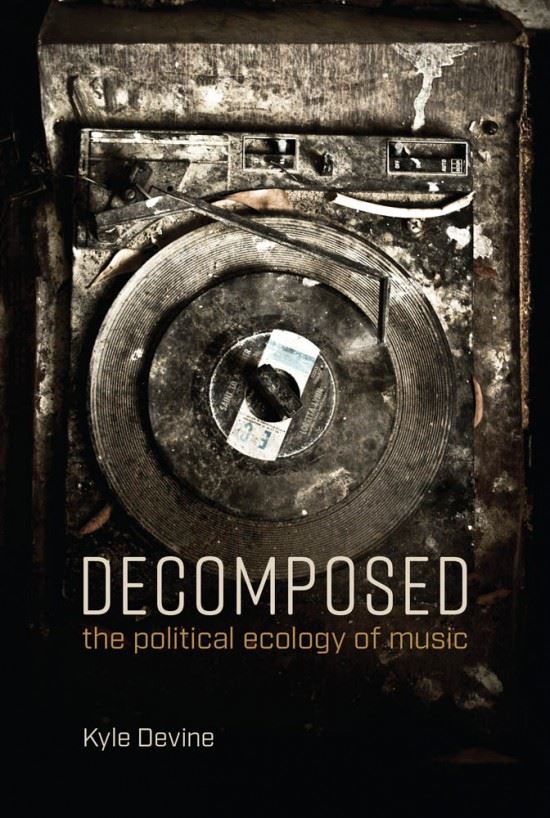 The committee also awarded an honorable mention to Kyle Devine’s Decomposed: The Political Ecology of Music (The MIT Press)
The committee also awarded an honorable mention to Kyle Devine’s Decomposed: The Political Ecology of Music (The MIT Press)
This book is an excellent example of “musicology without music.” Focused on the materiality of musical media, the author investigates the environmental impact on the music industry, a dimension of music that needs further consideration in music studies and environmental studies. By focusing on music as an element in a larger political economy, Devine incisively highlights processes of “dispossession” and “decomposition” that challenge music listeners, performers, and scholars to consider the sustainability of our listening habits, often obscured by the supposedly immaterial nature of the digital age.
Previous Woody Guthrie Award Winners
2019:
Mark Burford. Mahalia Jackson and the Black Gospel Field (Oxford University Press)
Honorable Mention:
Dale Chapman. The Jazz Bubble (University of California Press).
2018:
Kristina M. Jacobsen. The Sound of Navajo Country: Music, Language, and Diné Belonging (UNC Press)
Honorable Mention:
Licia Fiol-Matta. The Great Woman Singer: Gender and Voice in Puerto Rican Music (Duke University Press)
2017:
John Troutman. Kika Kila: How the Hawaiian Steel Guitar Changed the Sound of Modern Music (UNC Press)
2016:
Allison McCracken. Real Men Don’t Sing: Crooning in American Culture (Duke University Press)
2015:
Eric Weisbard. Top 40 Democracy: The Rival Mainstreams of American Music (University of Chicago Press)
Honorable Mentions:
Nadine Hubbs. Rednecks, Queers, and Country Music (University of California Press)
Barry Shank. The Political Force of Musical Beauty (Duke University Press)
2014:
Lila Ellen Gray Fado Resounding: Affective Politics and Urban Life (Duke University Press)
Honorable Mentions:
Todd Decker. Show Boat: Performing Race in an American Musical (Oxford University Press)
Marc A. Hertzman. Making Samba: A New History of Race and Music in Brazil (Duke University Press)
2013:
Deborah R. Vargas. Dissonant Divas in Chicana Music: The Limits of La Onda (University of Minnesota Press)
Honorable Mention:
Mark Katz. Groove Music: The Art and Culture of the Hip-Hop DJ (Oxford University Press)
2012:
Nona Willis Aronowitz, ed, Ellen Willis. Out of the Vinyl Deeps: Ellen Willis on Rock Music (University of Minnesota Press)
Kevin Fellezs. Birds of Fire: Jazz, Rock, Funk and the Creation of Fusion (Duke University Press)
2011:
Karl Hagstrom Miller. Segregating Sound: Inventing Folk and Pop Music in the Age of Jim Crow (Duke University Press)
Honorable Mention:
Katherine Meizel Idolized: Music, Media and Identity in American Idol (Indiana University Press)
2010:
Steve Waksman. This Ain’t the Summer of Love: Conflict and Crossover in Heavy Metal and Punk (University of California Press)
Honorable Mentions:
Annie Randall. Dusty! Queen of the Postmods (Oxford University Press)
David Suisman. Selling Sounds: The Commercial Revolution in American Music (Harvard University Press)
Elijah Wald. How the Beatles Destroyed Rock ‘n’ Roll: An Alternative History of American Popular Music (Oxford University Press)
2009:
Alejandro Madrid. Nor-tec Rifa! Electronic Dance Music from Tijuana to the World (Oxford University Press)
Honorable Mentions:
Charles Hiroshi Garrett. Struggling to Define a Nation: American Music and the Twentieth Century (University of California Press)
Marybeth Hamilton. In Search of the Blues (Basic Books)
2008:
Ingrid Monson. Freedom Sounds: Civil Rights Call Out to Jazz and Africa (Oxford University Press)
2007
Heidi Feldman. Black Rhythms of Peru: Reviving the African Musical Heritage in the Black Pacific (Wesleyan University Press)
2006
Steven F. Pond. Head Hunters: The Making of Jazz’s First Platinum Album (University of Michigan Press)
Honorable Mentions:
Paul Austerlitz. Jazz Consciousness: Music, Race, and Humanity (Wesleyan University Press)
Lisa Rhodes. Electric Ladyland: Women and Rock Culture (University of Pennsylvania Press)
Daniel Goldmark. Tunes for ‘Toons: Music and the Hollywood Cartoon (University of California Press)
2005
Bryan McCann. Hello, Hello Brazil: Popular Music in the Making of Modern Brazil (Duke University Press)
Honorable Mention:
Tim Lawrence. Love Saves the Day: A History of American Dance Music Culture, 1970-1979 (Duke University Press)
2004
Guthrie Ramsey. Race Music: Black Cultures From Bebop to Hip-Hop (University of California Press)
2003
Bernard Gendron. Between Monmartre and the Mudd Club: Popular Music and the Avant Garde (University of Chicago Press)
2002
Gary Giddins. Bing Crosby: A Pocketful Of Dreams: The Early Years 1903-1940 (Back Bay Books)
Theodore Gracyk. I Wanna Be Me: Rock Music and the Politics of Identity (Temple University Press)
2001
Norman Stolzoff. Wake the Town and Tell the People: Dancehall Culture In Jamaica (Duke University Press)
2000
Adelaida Reyes. Songs of the Caged, Songs of the Free: Music and the Vietnamese Experience (Temple University Press)
Honorable Mention:
Steve Waksman. Instruments of Desire: The Electric Guitar and the Shaping of Musical Experience (Harvard University Press)
1999
Frances R. Aparicio. Listening to Salsa: Gender, Latin Popular Music, and Puerto Rican Cultures (Wesleyan University Press/University Press of New England)
Honorable Mention:
Daniel Cavicchi. Tramps Like Us: Music and Meaning among Springsteen Fans (Oxford University Press)
1998
Scott DeVeaux. The Birth of Bebop: A Social and Musical History (University of Califonia Press)
1997
Paul Théberge. Any Sound You Can Imagine: Making Music/Consuming Technology (Wesleyan University Press)

